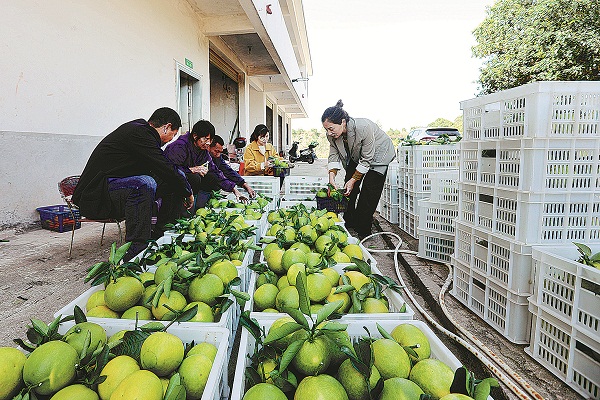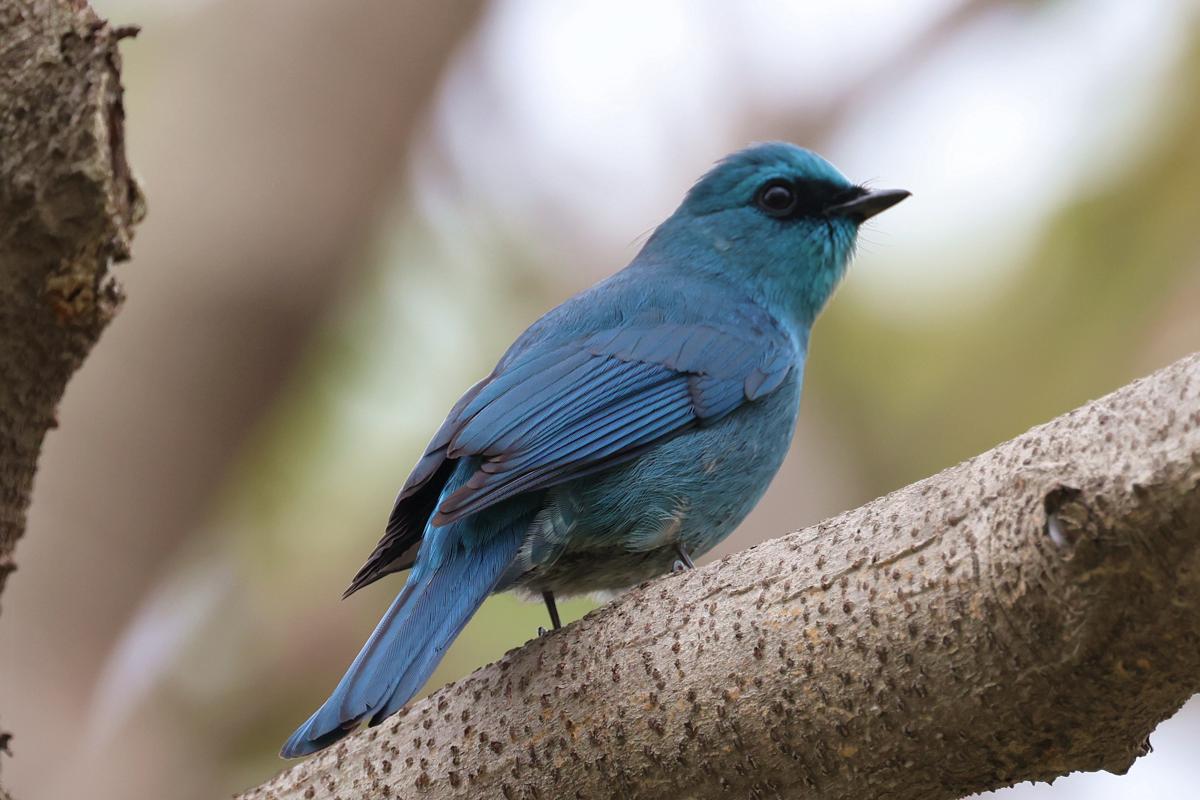Villagers take a green path to riches

Farmers harvest grapefruit in Sanzhou town, Changting, last month. [Photo by GUO YIBIN/FOR CHINA DAILY]
Big ambitions
When Ma Xuemei married a man from Changting in 1986, she thought she could make a fortune by farming the rich soil in the mountainous county, which is renowned for its subtropical climate and heavy rainfall.
However, the young woman from Qingdao, a coastal city in Shandong province, didn't expect the rain to wash away the soil and plants instead of nourishing them.
"I knew nothing about the water and soil loss. When my husband told me that his hometown had abundant farming resources, including rich, red soil, I thought it would be arable land. Instead, it turned out to be barren," the 58-year-old recalled.
In the 1990s, Ma and her husband returned to Changting from Fuzhou, capital of Fujian, where they worked odd jobs because they didn't have any employment skills that would support them and pay for their children's education.
"We planned to plant trees on our mountain land, but some experienced farmers told us that would be impossible due to the water and soil loss that had lasted many decades," Ma said.
As far back as 1942, Zhang Mutao, an official responsible for measures to alleviate the problem of erosion, wrote in his work summary: "The mountains of Changting are all red, shining like blood … There are no insects, no rat trails, no roosting birds. Nothing but a miserable silence, always accompanied by the destroyed spirit of the mountains."
According to the local government, remote sensing data in 1985 showed that the county had about 98,000 hectares subject to soil erosion, accounting for 31.5 percent of its land area.
Meanwhile, the county's soil and water conservation center said that when soil erosion is at its worst, rainfall can cut hillsides into fragments that will develop into larger gullies over time.
Along the broken and barren mountains, rainwater will carry sediment into farmland and block waterways at the foot of the mountains, causing floods and damaging crops, it added.
In light of those conditions, Ma and her husband decided to try to raise chickens. However, most of their birds died due to the lack of water and the high land temperatures, which could reach 70 C.




